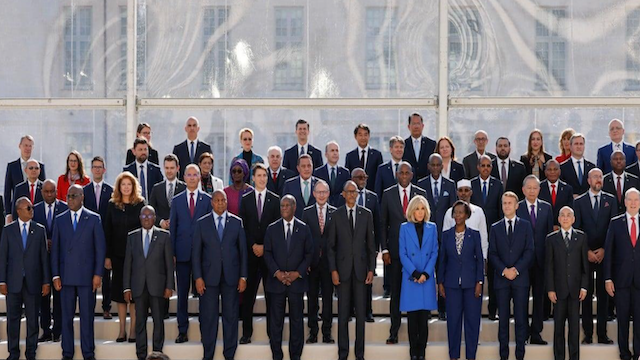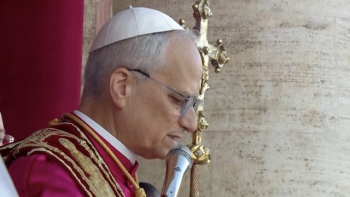After a long period of severe controversies related to the International Organization of La Francophonie (OIF), a new step towards the worse may be on the way. The situation has worsened during the 19th OIF Summit held in Villers-Cotterêts Château and the Grand Palais in in Hauts-de-France , Paris France on Oct. 4-5, 2024. Some key heads of French speaking countries avoided the summit, the President of the country with the highest number of people speaking French, after France, exited the Summit following the controversial speech of French President Emmanuel Macron and leaders of some key countries have decided to move away from French as the official language, while others have started breaking long term relations with France. Also, a top leader of a French political opposition party has publicly been expressing the people's disappointments regarding the way the OIF summit was led. The question now is whether, given all the controversies and dynamics, the Francophonie, widely termed MacroKagoPhonie by some critics, will survive.
Controversial Francophonie Summit .
The Organisation internationale de la Francophonie (OIF - International Organisation of La Francophonie), also known as the Francophonie, is an international organization formed by 88 member states in which French language is a customary or an official language. Its headquarters are in Paris, with an annual budget of around $100 millions and more than 300 employees. The top French speaking country, behind France is the Democratic Republic of the Congo (DRC), with French speaking population of around 49 million..
The Francophonie is currently led by a Rwandan former minister, Louise Mushikiwabo, as Secretary General. However, the Rwandan Government, which in the past was Francophone, no longer considers French as an official language and has instead joined The CommonWealth.
Among the dozens country leaders who attended the 19th OIF Summit were France’s President Emmanuel Macron, Democratic Republic of Congo's President Felix Tshisekedi, Rwandan dictator Paul Kagame, Cambodia’s King Norodim Sihamoni, Canadian Prime Minister Justin Trudeau.
Morocco's King Mohammed VI did not attend and was represented by the Head of Government Aziz Akhannouch. Cameroon dictator Paul Biya was nowhere to be seen. Other missing heads of states include Senegal's Bassirou Diomaye Faye. The presidents of Mali, Burkina Faso and Niger were not invited.
During his opening speech on Friday October 4, 2024, French President Emmanuel Macron urged the international community to avoid "double standards" in global conflicts, only citing the on-going wars in the Middle East and Ukraine. Nowhere in his speech did Emmanuel Macron mentioned the deadly invasion of the Democratic Republic of the Congo (DRC) by Rwandan troops under the cover of M23 rebels, the on-going wars in Sudan, Mozambique, Niger, etc...
The omission of the on-going deadly invasion of Eastern DR Congo by the Rwanda troops in Emmanuel Macron's statement, despite the documented investigations and public statements by the United Nations, European Union, United States of America, and other super powers, was viewed by several observers as an attempt by France's leader Emmanuel Macron to appease Rwandan dictator Paul Kagame. Even France's opposition leader Jean Luc Melenchon was quick to criticize Emmanuel Macron for the omission.
Advertisement
Get the following books on Amazon:

Legs of Tornado: The Human Who Outran the Wind, an African tale about a human from a humble upbringing who outran the wind, defeated evil spirits, overcame his fate, became a respected clan chief, and triumphed ever after.
Click Here to Get the books: Even Roosters Dream to Fly and Legs of Tornado
Even Roosters Dream to Fly along with Legs of Tornado are also available on Amazon worldwide and soon on several other platforms:
For more on the book, the author, the inspiration of the stories, Visit the author website here
Check the Book Video trailer of Even Roosters Dream to Fly, here
Following the speech, the visibly disappointed and probably angry Congolese President Felix Tshisekedi walked-out as a protest. His exit created a serious embarrassment for France's leaders and almost overshadowed the summit. President Felix Tshisekedi also skipped a luncheon organised by OIF Secretary General Louise Mushikiwabo, on Saturday Oct 5, 2024 noon.
Francophonie Facing Major Issues and Criticisms.
Speaking at a press conference on Saturday October 5, 2024 evening, France's Emmanuel Macron tried to appease the situation, denying taking sides, and stating that he has been trying to convince both Felix Tshisekedi and Paul Kagame to reach an agreement in talks mediated by Angola.
Before the summit opened, Emmanuel Macron had tried to meet the two leaders of Rwanda and DR Congo together without succes. He ended up holding separate meetings with each of the leaders. According to sources close to the Rwandan government, Paul Kagame had travelled to France with the promise to work with Emmanuel Macron in putting pressure on Felix Tshisekedi.
The Summit and the ensuing controversies have highlighted the issues faced by the Francophonie.
In the last years, leaders of many French speaking countries in Africa have distanced from France, eroding the influence of France in Africa. These include Burkina Faso, Mali, Niger following military coups over the last five years. The new leaders dropped French as the official language and have since started banning French-speaking media outlets and encouraging their people to prioritize local languages.
Even Senegal, a country in which the first president Leopold Sedar Senghor is considered as one of the founding fathers of the concept of Francophonie, and hence French was a priority, has been shifting to Wolof as the official language and banning efforts to prioritize French in school and institutions.
Over the last years Rwandan Louise Mushikiwabo, Secretary General of International Organization of La Francophonie (OIF), has been facing strong criticisms from governments of member states over alleged mismanagement and nepotism.
The criticisms started in 2021 and have now culminated in a decision by the Canadian Government to cut for at least a year, its financial participation in the organization (see Francophonie - Canada: Canada Cuts Funding Over Alleged Mismanagement, Embezzlement, and Sexual Harassment Under the Leadership of Rwandan Louise Mushikiwabo, Secretary General.).
The Questionable Future of Francophonie, aka MacroKagoPhonie.
Meanwhile, Paul Kagame has been serving interests of France in Mozambique, Central African Republic, Niger, and other countries. Some analysts point to the appointment of Louise Mushikiwabo to the post of Secretary General of International Community of La Francophonie (OIF) as a reward for Paul Kagame. Before becoming the organisation's chief, Louise Mushikiwabo served for years as Rwanda's foreign minister, a country in which French has been banned from official communications, despite that French had been an official language over decades. Even in the official picture of the heads of states during the summit, Paul Kagame was the state leader closest to Emmanuel Macron, his wife, and Louise Mushikiwabo.
The connection between Emmanuel Macron and Rwandan dictator Paul Kagame has led many people to calling La Francophonie a MacroKagoPhonie.
Hence, given the challenging issues faced by Francophonie, including the boycott by DR Congo's Felix Tshisekedi, the eroding influence of France in Africa, the movement of many African countries away from the French language, the controversial links between Rwandan dictator Paul Kagame and France's Emmanuel Macron and the persistent criticisms of Louise Mushikiwabo's leadership have intensified the doubts about the future of Francophonie or, as increasingly termed, MacroKagoPhonie.
©AfroAmerica Network, 2024
Advertisement
GET ARONISMARTINTELLIGENCE™ on App Store
AroniSmartIntelligence™, the leading tool for Advanced Analytics, Machine Learning & Data Science
Statisticians, Data Scientists, Business and Financial Analysts, Savvy Investors, Engineers, Researchers, Students, Teachers, Economists, Political Analysts, and most of the practitioners use Advanced Analytics to answer questions, to support informed decision making or to learn.
AroniSmartIntelligence™ is a leading Advanced Analytics, Machine Learning and Data Science tool, with optimized cutting edge Statistics models, Econometrics, Big Data and Text Analytics.
AronismartIntelligence™ includes modules covering Machine Learning and Big Data mining, Unstructured Text Analysis, Sentiment and Emotion Analytics, Bayesian Statistics and other advanced analytics.


















